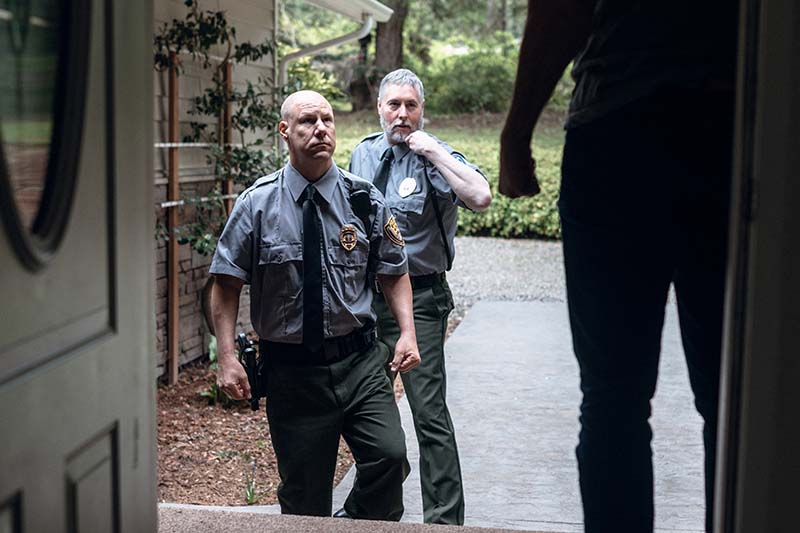The Profitability of Trauma

By Richard Driscoll
Almost all of us who have been involved in the cleaning or restoration industry have heard about, and perhaps have been intrigued by, trauma scene cleaning.
There are many terms that can be used to describe this type of work: Trauma scene cleaning, crime scene cleaning, and forensic restoration, among others. These terms and more refer to cleaning up and decontaminating a scene, or site, that has been affected in some way with human blood, tissue, and/or bodily fluids.
A question I am routinely asked is this: “What is involved in doing this type of work?”
The purpose of this article is to briefly look at these areas:
- Business potential
- Technical cleaning/decontamination expertise
- Psychological issues for technicians onsite
Business potential of trauma scene work
There are companies working in the United States that specialize in trauma scene clean-up work.
As a former restoration company owner, and one of the first to really specialize in this type of work, I know that there can be significant financial rewards. But to get into this aspect of cleaning or restoration, and to do it right, it will require that many aspects of business acumen all be brought together simultaneously.
From a business perspective, the marketing must be done appropriately, and in a somewhat “low-key” manner. This is a type of work that no one wants to have to call you to do. Billboards and flashy websites are not the proper approach, for various reasons.
And remember that this is a very limited market. Yet, there are also very few providers.
The following discussion is blunt, and I apologize to anyone who is offended. Unfortunately, business opportunities are based on very sad and troubling circumstances.
Death is going to happen to all of us. We will all die: In the home, a hospital, a car crash, a violent attack, or by some other means. Death in a hospital, for us as cleaning and restoration professionals, is a non-event. When a death occurs in a hospital or a hospice facility, then the attending physician can make the legal declaration that the person has died.
However, for virtually every other death, the only person who can make this declaration is the coroner. Knowing this, who is your key target for marketing? The coroner.
There are many different situations that require our type of expertise. Here are a few examples of incidences in which a company or organization will have to clean and decontaminate the location:
- If a person dies alone at home, it can be days to weeks before the body is discovered. The longer a dead body remains in place, the more it decays and the more complicated and costly the cleanup.
- Someone dies of a violent attack. The police arrest someone who is intoxicated, and that person vomits inside the police car.
- Someone becomes very ill in a hotel room and vomits large amounts of blood
From a business perspective, there are many opportunities beyond just the violent deaths and suicides we see on television or at the movies.
Technical expertise
[one_half]
The technical cleaning and decontamination procedures that need to be used are finally understood.
The IICRC developed the S540 Standard for Trauma and Crime Scene Cleanup, which covers trauma scene cleanup and decontamination work. The RIA also has a guidance document, The Guidelines for Professional Forensic Restoration. Both can provide help in understanding what you must do and how to clean and decontaminate the various situations technicians will encounter in the field. However, classroom training is a necessity as there are many different scenarios that will be encountered in the field, and being taught by a knowledgeable instructor is the only way to be prepared.
A couple of examples:
- Blood spatter on a sofa: Can it be cleaned, or should it be discarded?
- Blood spatter on a painted, sheetrock wall: Can it be cleaned, or should it be cut out and discarded?
If you thought both should automatically be discarded, you are wrong. During class, the instructor will explain how to make the clean-versus-discard decision, which is mostly based on the extent of contamination, the contaminated item’s porosity, and then the cleaning skills of the technician.
Psychological issues
One of the most significant and troubling issues in this line of work is the potential for psychological problems that technicians can experience in the field. If you read the true-life story in the sidebar to the left, you will see what I mean.
Decision time
Can trauma scene work be profitable? Yes. It can also be rewarding, as you are helping fellow humans when they are at a very low point in their lives. If you are in a position to do this type of work and decide to offer trauma scene cleaning, do your homework. Remember, this type of work does require proper marketing, training, and specific equipment and supplies.
Perhaps most importantly, it also requires the understanding that some aspects of this work are regulated. We will discuss regulations in an upcoming article
[/one_half]
[one_half_last]
[infobox title=’A True Story’]
[/infobox]

A woman left her husband and moved in with another man. The husband showed up at the wife’s new residence, and the wife called 911. The husband exited his vehicle with a shotgun, kicked in the front door, and shot and killed the boyfriend. The wife ran into the bedroom and locked the door. The husband blew the door open with the shotgun.
The wife then fled into the bathroom and locked the door. She was trying to escape the bathroom through a small window when the husband blew the door open with the shotgun and killed her.
The horror she must have felt when he came through the bathroom door still haunts me to this day. The police finally arrived and the husband tried to escape by
shooting his way through the police, who then killed him.
This is the kind of real-world situation you and your technicians will be facing if you choose to engage in trauma scene cleaning. The best way to minimize the psychological effects of this type of work is to not learn the facts of the case, but, as humans, we are always curious. As such, this type of work presents a real dichotomy: “I am curious to know, but I know that I really should not know.”
What this means is that trauma scene clean-up work is not for everyone. Doing this type of work should be on a totally voluntary basis, and no one should be forced to do this type of work.
[/one_half_last]
Richard Driscoll has a bachelor’s degree in mechanical engineering from Clarkson College of Technology and an MBA from the University of Dayton. He is a professor at Webster University where he provides graduate and undergraduate level lectures. He is an IICRC Certified Master Restorer, Master Textile Cleaner, and approved instructor. Driscoll has been consulted by state governments on legislation related to the cleaning and restoration industry. He also is the author and instructor for Restoration Sciences Academy’s MR-110 and MR-210 microbial remediation classes and MR-211 trauma scene clean-up class. He can be reached at [email protected].












